Read More, Read Better


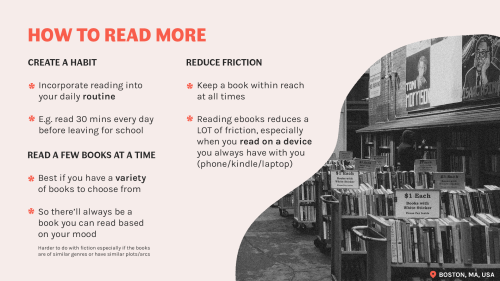
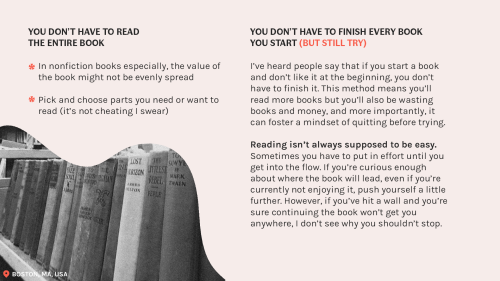


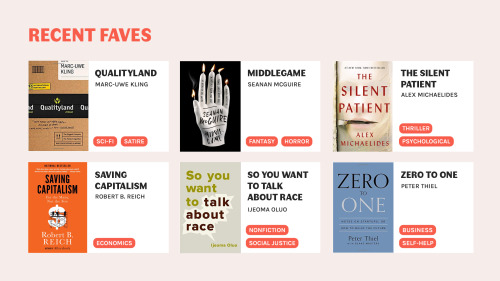
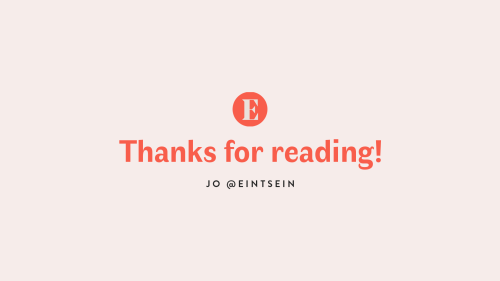
Read More, Read Better
Many of us are looking for more ways to enjoy our time at home in these stressful circumstances. Some of us have turned to books. But how can we make sure we get the most out of them?
Keep reading
More Posts from Oliviasstudyblrshit and Others
hello! i'm only starting to learn japanese and i'm finding it hard to know where i should start with the kanji. do you really have to learn kanji separately and memorize both their pronunciations or can you just learn the kanji in the vocabulary?
omg no! don’t stress yourself out like that anon!!
okay, i’m going to be real with the japanese language learning community: you all are doing waaaaaaaay too much when it comes to kanji.
there. i said it.
learning kanji does not have to be a headache!
i spent the first 6 months of my japanese learning “career” (for lack of a better word) trying to figure out the best way to learn kanji because every website and book was like “here’s the kunyomi, here’s the onyomi, now learn them both” but the fine print of that learning method says “you’re going to f*cking struggle”
but then i started realizing that kanji i read all of the time, i didn’t even “properly” study like those articles said. i didn’t know the kunyomi and onyomi for 行 for ages, but i knew it was read いく in 行く and こう in words like 旅行 and 直行. because i learned those words in context and on their own.
a few months after i came to japan, i started asking japanese people how they learned kanji and every single one of them answered the same way: they learn through vocabulary. i once asked my boyfriend how he learned kanji in grade school, and he said that they were basically given a kanji, and then they were given a list of vocabulary that included that kanji. they then memorized the vocabulary and grew to know the kunyomi and onyomi readings.
which, spoiler: kunyomi and onyomi is not always an accurate measure. lots of compounds use the kunyomi, some of them add dakuten (as in ちゅうごく instead of ちゅうこく in 中国), and others add っ (as in ちょっこう instead of ちょこう in 直行). this really isn’t something you can just magically guess.
but it’s important to remember that everyone learns differently. i don’t learn individual kanji – i learn kanji within various vocabulary words. i make sure to get as much exposure to the various ways a single kanji can appear within a larger compound, so 高 is not just a single kanji, but it is 高い and 高校生 and 高価.
i do, however, think it’s important to understand the meaning of a kanji. this can help you decipher the meaning of a word you don’t know yet. for example, 高価 (こうか) means “high price.” 高 means high and 価 means price. knowing their meaning individually can help decipher the meaning.
in this way you can argue that yes, knowing the individual readings of these two kanji makes guessing the reading of this word easier, but 価 can also be read “ke"! you can’t guarantee an accurate reading all of the time, but with more and more exposure to individual kanji, you will be able to tell.
which brings me to my main point: learning kanji is an individual experience. i, personally, think that learning onyomi and kunyomi readings for 2,000+ jouyou kanji is a HUGE WASTE OF TIME, but there are a lot of people out there that do this methodically and know lots and lots of kanji and vocabulary. i, personally, need kanji in a larger vocabulary word in order for it to stick, and my brain just catalogues the various readings away. that’s how my brain works and learns, but it’s not how everyone else works and learns.
it’s important to find what works for you.
that being said, if you’re just starting out i highly recommend Jakka. it’s a website meant for japanese grade school teachers and has tons of grade school kanji material broken up into their appropriate grades. japanese school children are expected to learn and master a certain amount of kanji + vocabulary each grade level, so if you’d really like to learn like a child, learn like the school children do! (the website is in japanese but fairly simple to navigate.)
i hope this helps a little anon! and remember that learning kanji isn’t a race. if it takes you awhile to learn them, don’t worry. everyone learns languages differently.

old digital planner layout.

Writing in Korean can be quite complex when it comes to spacing (띄어쓰기), as it involves several factors like grammar, sentence structure, and even the type of words. In this article, I’ll share some of the most important rules I’ve learned with you.
1. Particles:
Korean uses particles to indicate grammatical relationships between words in a sentence. To ensure clarity, it is essential to separate these particles from the following words. Some commonly used particles in Korean include 은/는, 이/가, 을/를, 에, 에서, (으)로, 에게, 도, 와/과, and so on.
For example, in the sentence “저는 한국에서 떡볶이를 먹었습니다” (I ate Tteokbokki in Korea), there are three particles used: 는, 에서, and 를. To make it clear, it is essential to add spaces after each particle.
It is essential to note that particles are included as part of the preceding word. Therefore, particles are not standalone words and should be attached to the word they modify without spaces.
2. Independent Nouns:
In some sentences, there may be two or three nouns put together to form a noun phrase. In constructing such phrases, it is generally advisable to separate each independent noun with a space.
For example, “한국 음식” (Korean Food) and “경영 대학교” (Business University) both consist of multiple nouns that should be separated by spaces.
However, there are exceptions to this rule:
Compound Words: When words are combined to create a new meaning, they should be written without spaces. For example, “tear” in Korean is “눈물”, a compound word made up of 눈 (eyes) and 물 (water). This word should be written together as “눈물” without a space between them. The same applies to verbs such as “to visit,” which is “방문하다”, a compound word made up of “방문” (visit) and “하다” (to do).
Proper Nouns: If the noun phrase is a commonly used or official name, such “한국관광공사” (Korean Tourism Organization) or “국립중앙박물관” (National Museum of Korea), it is standard to write the entire phrase without spaces. Doing so makes it more easily recognizable as a specific entity or organization.
3. Person’s Name and Title
Korean personal names consist of a surname and a given name, both of which have independent meanings and can be used as separate words. Although it can be argued that they should be written separately, personal names are unique nouns, and Korean surnames are usually only one syllable, making them feel incomplete on their own. Therefore, it is customary to write personal names without spaces between the surname and given name.
For example, “Park Ji-min” is written as “박지민,” “Kim Min-seok” is “김민석,” and “Lee Min-ho” is “이민호,” all without spaces.
However, when titles or job names follow a personal name, they are separate units and should be written with a space between them.
For example: 박지민 씨 (Mr. Park Ji-min), 민수철 교수 (Professor Min Su-cheol), 김 의사님 (Doctor Kim) all have a space between the personal name and the title or job name.
4. Numbers and counters:
In Korean, spacing is used between every ten thousand when writing numbers. This means that if you have a number with five digits or more, you will use a space to separate the digits in groups of four.
For example:
이천이십삼 (2023)
구만 팔천칠백육십오 (98765)
일억 이천삼백사십오만 육천칠백팔십구 (123456789)
When it comes to combining numbers with counters, there are two cases to consider:
If you write the number in digits, there is no space between the number and the counter. For example, “1개” (one piece), “2번” (two times), and “3명” (three people) have no space between the number and the counter.
However, if you write the number in words, there should be a space between the written number and the counter. For example, “삼 학년” (third grade), “칠천 원” (seven thousand won), and “칠 개월” (seven months) have a space between the written number and the counter.
5. Word modifiers:
When a modifier (such as an adjective, verb, or adverb) modifies a word, it should be separated from the word by a space. This helps to clarify the relationship between the two words and make the sentence easier to read.
For example:
유나는 예쁜 여자예요 (Yuna is a pretty girl)
한국 와서 처음 먹은 음식 기억나요? (Do you remember the first food that you ate in Korea?)
저는 일을 잘 해요 (I do my job well)
All use spacing to separate the modifier from the word.
Additional Notes:
– It’s worth noting that there are certain grammatical structures in Korean that require specific spacing. For example, “(으)ㄴ 적이 있다” (have done in the past), “(으)ㄹ 수 있다” (can/be able to), “아/어 보다” (try doing) and so on. It’s important to pay attention to these spacing rules when learning Korean to ensure that your writing is accurate and clear.
– Finally, when using “이다” (to be) or “아니다” (to not be), it’s important to note that “이다” is written immediately after a noun, while “아니다” is written separately from the noun due to the particle. This is important to keep in mind when writing sentences that use these verbs.
For example:
학생입니다 (I’m a student)
학생이 아닙니다 (I’m not a student.)
The preceding explanation outlines my current understanding of the spacing rules when writing in Korean. However, I also want to point out that there might be some special cases or exceptions to these rules that I’m not aware of. So, if you have any experience with these special cases, I’d love to hear about it! Let’s share our knowledge and learn from each other.
🌸 🌼 🌻
Support me at: https://koreanlanguageloving.my.canva.site/

( double tap for better quality )
back to posting!! hello, hello, nice to see u all again!! i know a lot of schools are closed, both in the us and internationally, so i hope everyone is doing well and staying safe. due to my lil unscheduled hiatus, i have a lot of spreads and content coming up soon!! if ur off school/work, or working from home, is there anything u have planned??

hey lovies!!
even with the current socioeconomic crisis, the prospect of moving from high shool to college or sixth form is still looming over many of us.
so i've compiled a list of things i've learnt and some advice that would've been so handy if someone had told me before hand!
it's divided into three sections for easy reading. if anyone want to add anything, feel free!! i'll update this at the end of second year!!
before college
if you're going to get folders for your subjects, a sturdy totebag (like from lush) is a shout. but a backpack is an even bigger shout.
before sixth form/ college starts, buy a planner or a journal. i have one that i got in october and omg guys. i have used almost every page and i'll probably only have to buy a second one in december. it's sturdy, i can set my own layout and!! it's got about 256 pages!
unless your teacher specifies otherwise, get a day folder!! it'll just be a smaller folder which you can take what you've done from that day or that week and move into your home folders. plus, it's just so much easier and more convenient.
you don't need to complete every single book on the reading list before you go back. try to become familiar with the ones that interest you the most or all of them, whatever floats your boat. just enjoy your summer!
hydroflask. hydroflask. hydroflask. you know, for water, tea ect.
find out what you like for breakfast. if you're like me, you never had breakfast before school at high school. that won't fly now! i love porridge to go so i can sort that out before my morning shower and then by the time i leave the house, it'll be the right temperature for my half an hour walk.
get yourself a little toiletries bag. put in tissues, hand sanitiser, makeup if you wear it, deodorant, body spray/perfume, hand cream, lip balm. you can even go as far as to get portable floss thingies
portable chargers are a life saver!
during college
the first week should be spent getting used to your learning centre. figure out the quickest route to your classes.
take a picture of your timetable and keep it as a lockscreen for like 2 weeks or until you get the hang of it
and most importantly!! learn everything you can about your library's loaning, returning and reserving process. if they also have recourses like flashcards, hefty amounts of paper, now is a good time to learn that for the future
if you have a personal tutor, try and stay on their good side as much as possible! they'll be your hypeman, your point of access and hell they might even become a great source of laughter and relief during the week.
you'll meet people in your classes that you don't vibe with. you'll meet people that you do. maybe, this is your chance to get away from past school friends/ acquaintances. whatever your case, try and stay grounded. don't sacrifice any part of yourself to fit in and definitely do not feel bad if people begin to drift away. everyone has different schedules and are at different stages, it's normal
during the school breaks (easter, christmas ect.) relax! obviously, complete the homework you've been given but take an actual break too!! trust me on this one
the balance of your work life, social life and sleep will be hectic and confusing and at some times, frustrating. you'll be able to do it, i can assure you. just never sacrifice your work life or your sleep for your social life!
relating to the above one, if you do get invited to events or your friends want to do something after college for fun, go have fun! at the end of the day, as long as you're caught up, your free time is yours.
also christmas time? if you want to get presents for your new college friends, by all means go ahead. but i would go by the rule to not get christmas presents during the first year of friendship unless you know 100% what to get them!
decide whether or not you're going to go paperless, have some paper documents for some subjects or just use printed documents and folders by about november time. that way, you know that your organisation system is consistent and you're not stressing out
condense your notes as you go along. the majority/all key words, key diagrams, and key concepts should be condensed or on flashcards by the time summer comes around
this is something i wish i knew beforehand. anki!! is an absolute life saver. if you're like me, you recently found out about the gem that is spaced repetition. anki does the work for you as long as you insert the info and remember to visit it everyday!
if you need support (academic, emotional ect.), it is perfectly fine to admit that and utilise the resources at your centre. hell, i strongly advise that you do so just for peace of mind
for my philosophy class, i'd advise doing this for any essay based subject, the day or two before an in class assessment, do some practise essays or answers with one or two of your classmates. you'll learn from each other and you can even turn it into a little study date as long as you do the work!
jstor, massolit, cambridge companions, emag, subject reviews (law review ect. by hodder education), podcasts, youtube videos and crash course will make your life so much easier!
try to go to some university lectures/taster days (i know it'll be hard but there are also online options)
whiteboards. whiteboards. whiteboards!! that's all i have to say
remember to have fun!! i know people say that these two years will be the best two years of your life but they kinda will be. the freedom is unmatched and the friends you may make will really help in stressful situations
now is the time to learn how to budget effectively. sixth form can cost a pretty penny if you're not diligent
if you have a part time job- ensure that you're being treated fairly. if you're not, leave. the weekend stress on top of your shool work will not be helpful and it won't benefit you in anyway!
after first year
if you haven't condensed all of your notes for the past year, complete it during the summer. you'll be at much more ease than you think
if you're doing any extra work (EPQ, medicine admissions test prep or law admissions test prep, coursework), do it during summer or at least have the bulk of it done. it will save you so much time and stress! the same with UCAS applications
there you go my loves! if you've got any questions, my inbox is always open!
How I Learn Languages
As an aspiring polyglot, it’s important that I have a bunch of resources at my disposal for language learning. I use a variety of resources for my learning, such as books, websites, apps, T.V. shows, movies, etc. Almost all of these resources are free too! These are some of my resources!
-Websites-
1. Omniglot
This website is more for finding information about languages and finding languages to learn. It has a very comprehensive list of languages and you can find plenty of secondary resources for learning the language. You can find tutors for that language, and even songs in your target language. I can just about guarantee you that no matter what language you’re looking for, it will be documented here. It is absolutely amazing, and it is a FANTASTIC resource for the dedicated linguist. Price- Free
http://www.omniglot.com/
2. Duolingo
This is both a website AND an app, however, I tend to use the website more frequently, mainly because I’m always on my laptop anyway. The learning system that this website uses makes out very easy to stay motivated, and the lessons are organized amazingly. Currently, the website offers about 27 different language courses for English speakers, and various language courses for speakers of languages other than English. You can set goals for yourself, take multiple courses, be involved in discussions, and even do translating activities. Beware though, it gets VERY addicting. Price- Free
https://www.duolingo.com

3. Memrise
Also a website AND an app, this is my all time favorite resource for learning languages. It has SO many languages to choose from, and it even offers subjects other than languages, although foreign language learning is its primary appeal factor. Price- Free
http://www.memrise.com/home/

4. BBC Languages
Although this sector of BBC has been archived and is no longer updated, it still contains some valuable information. It includes some useful phrases, alphabet guides, and jokes in many languages. You’re bound to learn something new there, so check it out! Price- Free
http://www.bbc.co.uk/languages/
5. Foreign Service Institute (FSI)
This website offers language courses constructed by the U.S. government, and relies heavily on audio-based learning. However, many of the language courses include lessons in the form of pdf. There is a very large selection of languages to choose from, so this resource is very good for getting an excellent introduction to your target language. Price- Free
https://fsi-languages.yojik.eu/
6. Live Lingua Project
Claiming to be the internet’s largest collection of free public domain language learning materials, this website is a MUST for language learners. It contains the FSI courses, Peace Corps language learning materials, and the DLI (military) language courses. It also offers Skype sessions for language learners in several different languages! The main appeal of this website, however, is the Peace Corps language material archive. There are SO many different languages to choose from, and there are many ebooks and audio files to take advantage of here. Price- Free
https://www.livelingua.com/#project
7. Languages On the Web
This website offers texts that translate English texts into 55 other languages. It is not a translator, it merely provides reading material in foreign languages to learners. It is a very useful website, especially for analyzing how sentences are formed in other languages. Price- Free
http://www.lonweb.org/
8. Learn 101
This website is really helpful for explaining grammatical concepts and for learning general stuff about languages, such as verbs, vocabulary, nouns, adjectives, basic phrases, foods, etc. There are quite alot of languages offered on this website, so it’s a great resource! Price- Free (for certain features)
http://learn101.org/
9. Clozemaster
This website is great for learning languages through a sentence based, contextual experience. It’s a bit like Duolingo in that sense, and it requires you to fill in missing words from sentences. In my opinion, it’s better for people with a background in their target language, and they offer many different options for languages. It’s also good for speakers of a native language other than English! Price- Free
https://www.clozemaster.com/

10. Lexicity
This is a great website for ancient language learners, and it provides resources for Egyptian, Mayan, Hittite, Latin, Old English, Etruscan, Gaulish, and several others. I have found the majority of resources that I have looked through helpful to my learning efforts. They have dictionaries, grammars, charts, and texts, and it is a very comprehensive resource. Price- Free
http://lexicity.com/

11. Book2
This is a good resource for learners looking for audio files to help them practice their listening. I haven’t used it all too much, but there are many language options, so you’re bound to find a language that you find interesting on here. Price- Free
http://www.goethe-verlag.com/book2/
12. Lang-8
This is a great resource for getting feedback on your writing in your target language. You can post things in your target language, and native speakers of that language will correct it, and you can do the same for other people! It’s very helpful, and is a great resource if you have to write in your target language often. Price- Free
http://lang-8.com/

13. Bilinguis
This website offers a few books to read in different languages and is good for comparing different languages of the same book. This makes for good practice for reading in your target language. Price- Free
http://bilinguis.com/
14. Udemy
There are quite a few languages courses on this website, although several of them cost money. However, there are quite a few courses that are free, and are good for introducing you to your language of choice. Price- Varies depending on the course, however, there are some free ones
https://www.udemy.com/courses/
-Apps- [For this, I can only give the price for iPhones, however, I am relatively sure that these should be the same price in the Android store]
1. Memrise
As mentioned above in the websites section, this app is so amazing for on-the-go language learning, as well as for subjects other than languages! It helps users memorize concepts with “meme” which are pictures that will remind you of what the word or concept means, and it’s such a unique and fun learning experience! It has the feel of using flashcards, but I just love using this app so much. Price- Free
2. Duolingo
Also mentioned in the websites section, this app is great for both learning new words and reviewing words that you have either memorized or have just been exposed to. There are grammar lessons available, translation activities, groups that you can join, and Duolingo makes it fun to learn a language with it’s reward system. Price- Free
3. HelloTalk
This is my absolute FAVORITE app to talk to native speakers of my target language(s). You can become language partners with people, help others with translations, video/voice call, send voice messages, and have as many partners as you want! It’s an absolutely amazing app, and I highly recommend it to everyone! Warning- If you’re a native English speaker looking for a native Chinese speaker, you will get HUNDREDS of requests. It might overwhelm you for a second. Price- Free

4. TuneIn Radio
This is really great for finding stations in your target language, and it helps with practicing both comprehension of spoken language as well as introduces you to awesome music in your target language! Price- Free
5. Tigercards
This app presents words in the form of lists, and gives you vocab so that you can review it. Not the best presentation of words and it doesn’t really offer a memorization technique like Memrise, but it’s still helpful! Price- Free
6. Busuu
This app is a bit like Duolingo, and it offers German, Spanish, Portuguese, French, English, Italian, Russian, Polish, Turkish, Japanese, and Chinese! Price- Free
7. uTalk
This app offers so many different languages, it’s pretty incredible. There are games that you can play, phrasebooks, and several other features. The interface is also really awesome and simple, so it makes learning easier than usual. Definitely a must have. Price- Free

8. Innovative Language
I haven’t used this app much, but I have heard that the lessons on this app are very good, and you can download the lessons so that you can view them offline. Price- Free
9. FlashSticks
This has been super helpful to me, in addition to the games and flashcards that it offers, it also provides an object scanner, which uses your camera to scan objects and then tells you what it’s called in your target language! Price- Free

10. Mondly
This has been an awesome resource for me since it’s a bit like Duolingo, only with more unique language options. I’m currently using it to learn Hindi, however, there are tons of other language options. The interface is awesome, and I love using it. Price- Free

11. MindSnacks
This company makes several different language apps, and currently I’m using the Mandarin, Japanese, and French ones. So far, I’ve really enjoyed these apps! Price- Free
12. Spotify
Through Spotify’s “Word” category, there are many different playlists dedicated to language learning, such as for Arabic, Mandarin, French, Spanish, German, Italian, Russian, Portuguese, and Swedish! Price- Free
13. Quizlet
This is more of a diy language learning resource. It is not an inherent language learning resource, however, if you learn best through lists and/or flashcards, then this app allows you to make cards and review vocab that way! I use it all the time for exams! Price- Free
14. FluentU
This is an awesome app for watching videos in your target language, and is really good for learning new words. Price- the app is free, but the service is $15 per month or $120 per year
-Books-
1. Teach Yourself
This series offers an astounding number of languages, and I have found them to be pretty effective in helping me learn languages. I have used the Russian, Arabic, Mandarin, and Irish ones.

2. Barron’s Grammar and Verb books
I really like the way Barron’s does language books, so far I have used their Japanese grammar book and their Russian verbs book, and I really like the layout of them, especially the grammar book!
3. Dk Visual Bilingual Dictionaries
These are so helpful for me, I’ve been using the Mandarin and Japanese dictionaries for a long time, and they are so comprehensive and awesome!
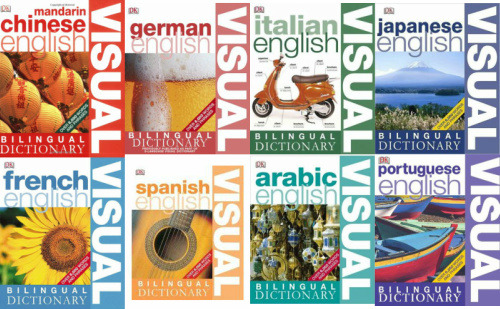
4. Ethnologue
These aren’t language “learning” materials, but rather they help me find new languages to learn. These are more for the linguistic lovers, since they catalog almost every living language in the world in every country, and provide language maps and statistics. There’s really fascinating stuff in those books, so I highly recommend purchasing them.
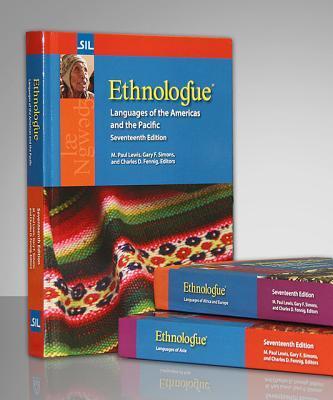
5. The “Dirty” books
So far, I have only used the Japanese version, however, I really like what the book includes, and it’s great for learning slang in your target language, and things that traditional textbooks wouldn’t teach you.

6. Living Language
I LOVE these books so much, I’ve used the Russian, Mandarin, and French ones and I’ve found them very helpful! The layout of these are very nice, and they’re pretty comprehensive.
7. Tuttle books
Tuttle offers several different language books, and they all are very good in my opinion. I have used their books for Arabic, Korean, Mandarin, Japanese, and Hindi.
That’s all that I have right now, but if you all would like more resources than I will definitely make a second one!


finally found a method for watching online lectures that works for me!! while i watch a lecture i take cornell style notes, just quickly writing down the most important stuff and summarizing, because if i only watch the lecture i get bored so easily. i don't really stop the video and have the lecture slides open too, if i want to reread something. after that i make flashcards with the app brainyoo based on the lecture slides and my notes. ideally, i would revise the flashcards regularly but mostly i start studying them when exams approach.

Instagram account : studygramjess 😊
-
 mist-heart liked this · 2 weeks ago
mist-heart liked this · 2 weeks ago -
 toothsplace liked this · 1 month ago
toothsplace liked this · 1 month ago -
 a-middle-class-obsession reblogged this · 1 month ago
a-middle-class-obsession reblogged this · 1 month ago -
 that-ghoooul liked this · 2 months ago
that-ghoooul liked this · 2 months ago -
 raoulduke liked this · 2 months ago
raoulduke liked this · 2 months ago -
 raven90731 liked this · 2 months ago
raven90731 liked this · 2 months ago -
 paperpowertool liked this · 3 months ago
paperpowertool liked this · 3 months ago -
 lycanthrotea liked this · 3 months ago
lycanthrotea liked this · 3 months ago -
 lavenderpatches liked this · 4 months ago
lavenderpatches liked this · 4 months ago -
 lycanthrology liked this · 4 months ago
lycanthrology liked this · 4 months ago -
 bisexualcell reblogged this · 4 months ago
bisexualcell reblogged this · 4 months ago -
 goldeneffort reblogged this · 5 months ago
goldeneffort reblogged this · 5 months ago -
 rockbirdwoman liked this · 5 months ago
rockbirdwoman liked this · 5 months ago -
 curiousmsmeg reblogged this · 5 months ago
curiousmsmeg reblogged this · 5 months ago -
 sh1thappens liked this · 5 months ago
sh1thappens liked this · 5 months ago -
 kerasaurus liked this · 5 months ago
kerasaurus liked this · 5 months ago -
 beeczarbagel liked this · 5 months ago
beeczarbagel liked this · 5 months ago -
 yourroseone liked this · 5 months ago
yourroseone liked this · 5 months ago -
 tiremascriancasdasala liked this · 5 months ago
tiremascriancasdasala liked this · 5 months ago -
 hoosierintherye reblogged this · 5 months ago
hoosierintherye reblogged this · 5 months ago -
 lazycaptainjem reblogged this · 6 months ago
lazycaptainjem reblogged this · 6 months ago -
 napalm-waistcoat reblogged this · 7 months ago
napalm-waistcoat reblogged this · 7 months ago -
 annita89vcmtf2h liked this · 7 months ago
annita89vcmtf2h liked this · 7 months ago -
 the-dose-makes-the-poison liked this · 7 months ago
the-dose-makes-the-poison liked this · 7 months ago -
 sheeeenna reblogged this · 7 months ago
sheeeenna reblogged this · 7 months ago -
 rulingtheworldistoomuchwork liked this · 8 months ago
rulingtheworldistoomuchwork liked this · 8 months ago -
 demeletron reblogged this · 9 months ago
demeletron reblogged this · 9 months ago -
 steadybarbarianduck liked this · 9 months ago
steadybarbarianduck liked this · 9 months ago -
 nemo77550 liked this · 9 months ago
nemo77550 liked this · 9 months ago -
 dreamcreations reblogged this · 9 months ago
dreamcreations reblogged this · 9 months ago -
 mariazz reblogged this · 10 months ago
mariazz reblogged this · 10 months ago -
 parangmagic reblogged this · 10 months ago
parangmagic reblogged this · 10 months ago -
 orphic-studies liked this · 10 months ago
orphic-studies liked this · 10 months ago -
 kiki-miserychic reblogged this · 10 months ago
kiki-miserychic reblogged this · 10 months ago -
 justforfollowingpeople liked this · 10 months ago
justforfollowingpeople liked this · 10 months ago -
 kiki-miserychic reblogged this · 10 months ago
kiki-miserychic reblogged this · 10 months ago -
 sisterofreverance liked this · 10 months ago
sisterofreverance liked this · 10 months ago -
 pussy-nefarious liked this · 11 months ago
pussy-nefarious liked this · 11 months ago -
 mesonaughty reblogged this · 1 year ago
mesonaughty reblogged this · 1 year ago -
 morgenstaern reblogged this · 1 year ago
morgenstaern reblogged this · 1 year ago -
 morgenstaern liked this · 1 year ago
morgenstaern liked this · 1 year ago -
 runtowonderland reblogged this · 1 year ago
runtowonderland reblogged this · 1 year ago -
 weeevils liked this · 1 year ago
weeevils liked this · 1 year ago




